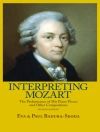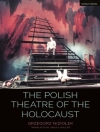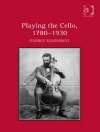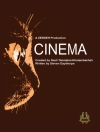Stanley Kubrick was arguably one of the most influential American directors of the post-World War II era, whose Central European Jewish heritage, though often overlooked, greatly influenced his oeuvre. Kubrick’s Mitteleuropa explores this influence in ways that range from his work with Hungarian and Polish composers Béla Bartók, György Ligeti, and Krzysztof Penderecki to the visual inspiration of artists such as Egon Schiele, Gustav Klimt, and other Central European Modernists. Beyond exploring the Mitteleuropean sensibility in Kubrick’s films, the contributions in this volume also provide important commentary on the reception of his films in countries across Eastern Europe.
Cuprins
List of Illustrations
Acknowledgments
Introduction: Kubrick and Mitteleuropa, or, a Source of Fascination and Anxiety
Jeremi Szaniawski and Nathan Abrams
Chapter 1. Kubrick’s Kunstwollen: Fin-de-Siècle Vienna and the Erotics of Authorship in Eyes Wide Shut
Maxfield Fulton
Chapter 2. The Reverberations of War: Erich Maria Remarque’s All Quiet on the Western Front and the Cinema of Stanley Kubrick
Jason Doerre
Chapter 3. From Caligari to Kubrick: Programmed Children in Weimar Cinema and Stanley Kubrick’s Science Fictions
Joy Mc Entee
Chapter 4. Kubrick and Kafka: The Corporeal Uncanny
Brigitte Peucker
Chapter 5. A Dark Meditation on the Human Condition: The Shining and Mitteleuropa
Geoffrey Cocks
Chapter 6. Kubrick/Schulz: Echoes of Poland in The Shining
Jeremi Szaniawski
Chapter 7. Penderecki and Kubrick
Krzysztof Kozłowski
Chapter 8. Restricted Area: On the Distribution and Reception of Stanley Kubrick’s Films in the Polish People’s Republic
Konrad Klejsa
Chapter 9. “A Sentimental Postcard to his Forefathers?”: Stanley Kubrick’s Aryan Papers (1991-1993)
Nathan Abrams
Despre autor
Jeremi Szaniawski is Associate Professor of comparative literature and film studies, and the Amesbury Professor of Polish Language and Culture in the Department of Languages, Literatures, and Cultures at the University of Massachusetts Amherst. He is the editor of After Kubrick: A Filmmaker’s Legacy (Bloomsbury, 2020), and of the online dossier “The Shining at 40” (Senses of Cinema, 2020), as well as the co-editor, among others, of Fredric Jameson and Film Theory: Marxism, Allegory, and Geopolitics in World Cinema (Rutgers University Press, 2022), and Gender, Power, and Identity in The Films of Stanley Kubrick (Routledge, 2023).












